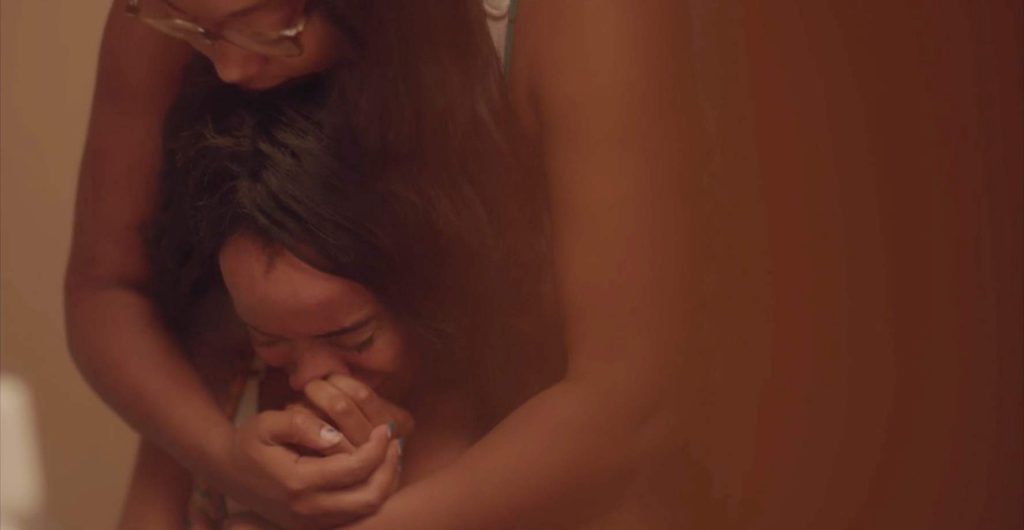|
|
I have three sisters. I grew up with two of them, wedged right in the middle. Unlike the rest of us, my youngest sister was born in the US and went to live with my father before we could all reunite. We just never connected (that’s another story).
I’m very close to the sisters I grew up with, particularly my younger one (not to the youngest). We are inseparable, I’m always on her side.
Watching Jezebel, I was at first captivated by the vulnerability of the scene where they lost their mother. I was mesmerized by Tiffany Tenille‘s role as Jezebel. Her vulnerability and clarity in each scene drew me in the story. I have now re-watched the film five times now, and it’s taken me 6 months to put to my thoughts to paper. I have percolated on the film and concluded that director Numa Perrier took a topic that most people “pretend” to have a problem with, and used it to illuminate the bonds of sisterhood.

Director Perrier took a difficult topic and addressed it with a boldness that could only be summed up with “You got something to say? Cause I wish a ni**a would.”
Sabrina did what she could to help her sister. Someone on the streets of social media mentioned something-along-the-line-of, “she should have helped Tiffany go to school”. I think folks live in an imaginary land where going to school can somehow lessen the pangs of capitalism. Folks watch too many Hollywood versions of what support looks like. It crafts and packages ideas of support into a saviorship format where one sibling sacrifices themselves so that the other can end-up in some prestigious school.
I made #jezebelmovie for Black Women, for sisters, for anyone whose lost a mother, for survivors, for sex workers, for 4C hair…
@missnuma
While I don’t deny that perhaps these stories exist, the support and love in Jezebel comes from having someone who can love you and have vulnerable moments with you, even when their own life is a challenge. Support comes in the form of honesty. Sabrina didn’t paint a picture of “I have the solution”, it came with what I think support should look like—”I will assist you with something I already know how to do”. There’s vulnerability and honesty in that.
I grew up listening to the voisins in Haiti saying things like “pa kroké rad ou koté ponyèt out pa ka rivé”, loosely translated as “don’t hang your clothes where you can’t even reach for them.” Sabrina supported her sister by helping to wash and fold the laundry of her sister’s life, not with a fanciful window-shopping distraction of what-if’s. I walked away with the sense of “I’ve got you—grounded in this reality with me.”
The slice that Director Perrier gave us contained no shame, no infantilization, no unrealistic expectations and no “let this be a lesson” finger wagging moment. It was love. I felt that and I’m always working on that with my sisters.
Confessions of a Bad Haitian Haitian Jezebel Numa perrier Sisters Tiffany Tenille


